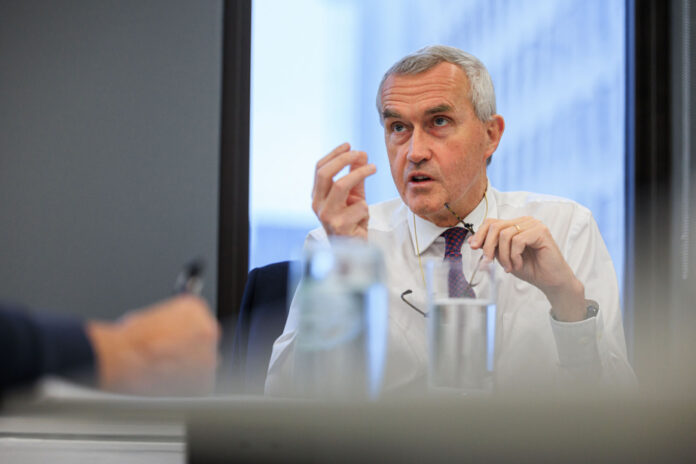Veolia, a French global giant in water, waste and energy management, plans to finalize the construction of the Saint-Laurent organic waste processing center in the coming months, which will be operational next fall. “A project that’s off to a bad start, but one that should rally everyone once it’s launched,” said Frédéric Van Heems, CEO of Veolia North America, visiting the group’s Montreal offices.
The construction of the two compost plants which must serve the needs of residents throughout the island of Montreal has been particularly complicated since the signing of the contract in 2019.
Poor relations between Veolia and several subcontractors, including the project manager, the company EBC, forced the closure of the sites for more than nine months between summer 2022 and spring 2023.
It should be remembered that initially, it was the French company Suez which won the contract for the construction and operation of the factories for a period of five years, but Suez was bought by its competitor Veolia in January 2022, and it was the latter who found herself managing this problematic file.
“When you start a project of this scale following a call for tenders, there is always a time of adjustment for all parties to agree, this happened in the midst of COVID-19, and discussions were affected.
“There was the employment situation, suppliers who were unable to deliver, costs which increased. The case went to court, we had to redo the alignment,” relates today Frédéric Van Heems, CEO of Veolia North America, the continental division of Veolia which brings together 10,000 employees in Canada and the United States and which carries out revenues of US$3.6 billion.
Since the spring, all suppliers have returned to do the work after the City agreed to increase the budget by $35 million to adjust for rising costs and certain improvements that were required. In total, the construction of the two factories will cost 270 million, and the operating costs for the first five years will exceed 100 million.
Veolia is lining up to undertake the first tests at the Saint-Laurent composting center in the spring, with the aim of entering production in the fall. The Montreal-East biomethanization plant will begin its first tests in spring 2025.
The Saint-Laurent organic materials processing center (CTMO) will compost 50,000 tonnes of table waste per year, which will be collected throughout the western territory of the city, while the Montreal-East CTMO will transform it into biogas 60,000 tonnes of organic waste collected in eastern Montreal – biogas which will be recovered by Énergir.
Veolia is the world leader in water and waste management, with more than 220,000 employees on five continents following the acquisition of Suez. The company does water treatment and management for municipalities and industries almost equally.
The French group is also active in waste processing and promotes the circular economy by recycling household waste in particular. In the United States, it mainly manages hazardous waste.
Finally, the group has developed an energy division, which offers renewable energy solutions on a local scale, whether wind or solar mini-grids for businesses and municipalities.
The company, which celebrates its 170th anniversary this year, was founded in Lyon, France, in 1853 and long operated under the name Compagnie Générale des Eaux.
“As Pasteur said around the same time, “we drink 90% of our illnesses”; it was necessary to treat the water of the city of Lyon and we became the first public-private partnership. We then started collecting waste,” relates Frédéric Van Heems.
Veolia’s footprint in Canada is varied. The company notably operates a biomethanization plant in Toronto, another used oil treatment plant in Saint-Hyacinthe and soon two CTMOs in Montreal.
Veolia has a turnover of 275 million in Canada and employs some 1,000 people, 80% of whom are in the field doing daily systems management.
Veolia is today engaged in ecological transformation, which goes much further than ecological transition, according to Frédéric Van Heems.
“We are a company that has a reason for being, we contribute to human progress, it’s not communication, it’s our reason for being. We offer solutions for all types of industries, whether in water management, hazardous waste, energy transition and for municipalities,” insists the CEO.















